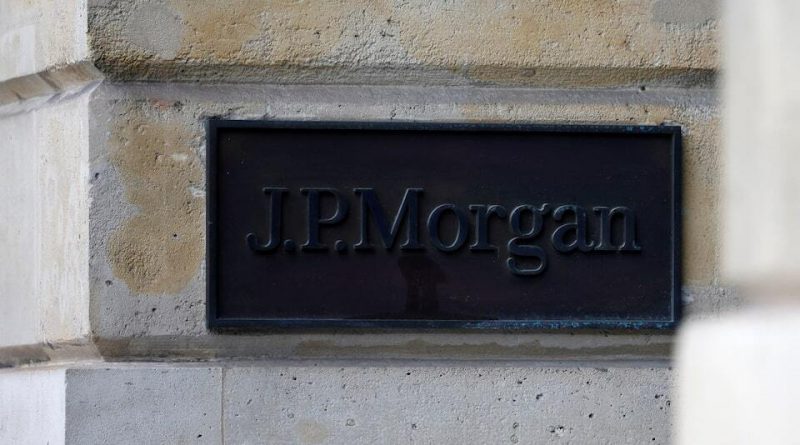JPMorgan’s $10 Billion National Security Push Marks Bold Step in Strengthening America’s Economic Backbone
JPMorgan Chase has announced an ambitious plan to invest up to $10 billion in U.S. companies vital to national security and economic resilience, marking one of the largest private-sector initiatives focused on strengthening America’s strategic industries.
This decade-long commitment forms part of the bank’s broader $1.5 trillion pledge to support sectors that are critical to the nation’s growth and long-term stability.
The initiative will focus on four core areas — supply chain and manufacturing, defense and aerospace, energy independence, and advanced frontier technologies such as artificial intelligence and quantum computing.
Through this effort, JPMorgan aims to build a more resilient U.S. economy that can withstand global disruptions while maintaining technological leadership.
JPMorgan’s announcement comes at a time when the U.S. government is placing renewed emphasis on bolstering domestic production and reducing reliance on foreign supply chains, particularly in sectors like semiconductors, pharmaceuticals, and clean energy.
The move also aligns with national efforts to strengthen economic security amid rising geopolitical tensions and trade disputes with countries such as China.
CEO Jamie Dimon made it clear that the initiative is entirely JPMorgan-driven and “100% commercial,” distancing it from any direct political influence. “This is a JPMorgan initiative,” Dimon told reporters during a press call.
“America needs more speed and investment. We’ve allowed ourselves to become too dependent on unreliable sources for critical minerals, products, and manufacturing. It’s time to fix that.” His remarks highlighted a growing recognition that economic resilience and national security are deeply interconnected.
The $10 billion will be deployed through direct equity and venture capital investments, targeting both large corporations and middle-market companies.
By supporting businesses at different scales, JPMorgan hopes to build a broad industrial base that strengthens domestic innovation and production. The bank also plans to establish an external advisory council composed of leaders from both the public and private sectors to guide the program’s direction.
Mary Erdoes, CEO of JPMorgan’s asset and wealth management business, and Doug Petno, Co-CEO of commercial and investment banking, will lead the initiative. Both are widely seen as potential successors to Dimon and are expected to play a key role in shaping the bank’s long-term vision for economic leadership. JPMorgan also plans to hire more bankers and investment professionals to support this growing effort.
The “security and resiliency initiative,” as the bank calls it, reflects a broader trend among U.S. financial institutions to align their investment strategies with national priorities. However, analysts note that JPMorgan’s scale and structure make this initiative stand out. “This is different in magnitude and time commitment,” said Mike Mayo, an analyst at Wells Fargo. “It represents a newer direction for sustainability and long-term economic planning.”
Other major banks have also financed defense, energy, and advanced manufacturing projects, but JPMorgan’s approach integrates these efforts under one cohesive framework. According to Michael Ashley Schulman, partner and chief investment officer at Running Point Capital Advisors, “JPMorgan stitched together an ocean of existing credit into one big patriotic umbrella. It’s both symbolic and strategic — a move that builds goodwill with the administration and the business community alike.”
The initiative will also expand JPMorgan’s research capabilities. The bank’s newly launched Center for Geopolitics will study supply chain vulnerabilities, global market risks, and emerging technologies that could redefine national competitiveness.
By combining financial expertise with geopolitical insight, JPMorgan aims to stay ahead of shifting economic landscapes.
This announcement comes as the U.S. pursues deals across nearly 30 industries considered vital to national or economic security. JPMorgan has already played a key role in structuring partnerships, including the government’s deal with MP Materials, a U.S.-based rare earth mining company essential to defense and tech manufacturing.
Andrew Castaldo, co-head of mid-cap mergers and acquisitions at JPMorgan, noted that the bank has fielded “no less than 100 calls from clients” to explore similar opportunities.
Dimon also used the occasion to call for policy changes that could accelerate progress. He pointed to regulatory delays, talent shortages, and infrastructure bottlenecks as key barriers to faster growth.
“America has always been strongest when it moves decisively,” he said. “We need more investment, more innovation, and more partnership between the private sector and government.”
By identifying 27 sub-sectors — ranging from shipbuilding and nuclear energy to nanomaterials and secure communications — JPMorgan’s plan demonstrates a granular understanding of the industries that will define America’s future.
The firm’s investment is expected to stimulate job creation, technological development, and industrial modernization across the country.
Shares of JPMorgan rose more than 2% following the announcement, signaling investor confidence in the bank’s long-term vision.
The market response suggests that aligning profit-driven strategy with national priorities can create a powerful narrative of responsible capitalism — one that not only delivers shareholder value but also contributes to national stability.
In many ways, JPMorgan’s new initiative represents a defining moment for the U.S. financial sector. It bridges the gap between Wall Street’s commercial ambitions and Main Street’s strategic needs, offering a blueprint for how financial power can reinforce national resilience.
As the global economy grows increasingly uncertain, such forward-looking commitments may well shape the next era of American economic leadership — one built on strength, innovation, and security.



